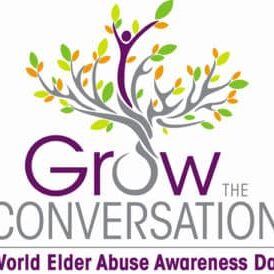It goes without saying that caregiving can be stressful (we’ve even covered self-care tips and avoiding fatigue on the blog before). Aging in general can also be stressful. But how exactly does stress affect older adults and the people that care for them?
What does stress do to the body?
Stress can weaken the immune system– which can be especially harmful for older adults as our immune systems weaken as we age. If an older adult lives with a chronic disease, it can take even longer to recover from feeling stressed.
Stress triggers a “fight or flight” response. When we feel stressed,
stress hormones (e.g., adrenaline and cortisol) get sent to our brain.
At the same time our body prepares for a fight or to run away
by telling the heart to pump faster and our muscles tighten so you’re
ready to fight or flee. Once the stressful event is over, the body
relaxes and returns to normal. If the body stays in the stressed state
for too long (or too often), it can lead to long-term consequences such
as high
blood pressure, heartburn, insomnia, a higher risk of heart disease,
and mental health issues including anxiety and depression.
Reacting to stress
It’s not uncommon to notice that the way you respond to stress changes as you age. Older adults tend to be stressed by chronic conditions, loss of their social group, loss of independence, and financial difficulty. Stressors for older adults also include having large amounts of unstructured time, loss of physical independence, and changes in their relationships- especially with their children.
Signs of stress can include:
- Feeling guilty or overwhelmed
- Fatigue
- Being more irritable than usual
- Change in sleep patterns and weight (weight loss/gain)
- Body pains- headaches, pain where stress is held in the body (usually in the shoulders, neck, or back)
- Substance abuse
Tips for dealing with stress
- Talk to a family member or friend about what you’re going through
- Don’t isolate yourself. Visit a senior center or join a caregiver support group to find a support system.
- Try relaxing hobbies like yoga, tai chi, or meditating
- Practice deep breathing or counting backwards from 10 when you’re stressed
- Make sure you’re getting enough sleep
- Stress hormones leave our bodies as we sleep. This can lead to a buildup in these hormones in older adults since they tend to have difficulty sleeping
- Make time for self care- whatever that looks like for you
Visit the Ahead of the Curve Resource Directory to find social outlets and caregiver services in your community.






